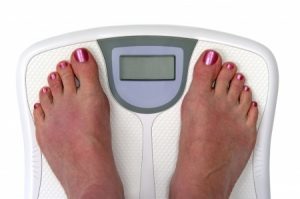
Do you know anyone who uses artificial sweeteners because they’re dieting?
Statistics show that 73 percent of low-calorie product consumers are not on a diet. Instead, these “non-dieters” have the impression that diet products are part of a healthy lifestyle.
Hum – who gave them that impression?
Marketers!
Marketers promote the importance of artificial sweeteners and diet products promoting the following myths:
Myth #1:
Artificial sweeteners offer a way to control calories. Diet products have made “calorie juggling” a popular method for maintaining weight.
Myth #2:

As part of a sensible weight-control program, artificial sweeteners can help you reduce calories, which helps you lose weight.
Myth #3:
Artificial sweeteners and diet products provide weight-conscious people with a greater variety of food and beverage choices.
Myth #4:
The ultimate success of any weight-loss program depends on the particular product—not on the responsibility of the individual.
Myth #5:
Human and animal evidence supports complete artificial sweetener safety.
Myth #6:
The majority of health professionals push diet products as beneficial for weight control and diabetes.

Debunking The Myths
You can read the details in Sweet Poison, but for now, here are the main talking points:
There are many research studies that prove the artificial sweeteners actually cause weight gain. Research the Cephalic Phase Response for starters.
So, for the average person, diet sweeteners are no guaranteed path to weight loss. No product, no pill, no medication can take the place of a healthy diet, exercise, plenty of rest, and a balanced lifestyle.
Diet products aren’t the answer.
Don’t Worry—You Can Make Changes To Lose Weight
Try these suggestions to dispel the bogus myths:
* In restaurants, share entrees or ask the waiter to put half the entree in a doggie bag for later – before you even touch it.
* Order lunch-sized portions for all meals. Many restaurants serve four to six ounces of meat at lunch, compared to eight to ten ounces at dinner.
* At home, use smaller plates and bowls. It will look as if you’re eating more.
* Check food labels for the serving size. Eat one serving only.
* Drink water for a snack when you’re hungry.
* Instead of drinking soda (regular or diet), drink water (add a squirt of lemon or lime for flavor).
* Measure your servings to see their sizes. Example: Two level tablespoons of peanut butter.
* Buy smaller packages of candy, popcorn and snacks, or better yet, seek out healthy alternatives like raw vegetables, nuts and seeds, fruit, cheese and hardboiled eggs.
* Do not eat or drink diet products – period.
As you gradually avoid fake foods and artificial sweeteners in your daily life, replace them with whole, nutritious foods, and your body will feel satisfied. When you give your body the whole food nutrients that it needs to maintain health, you will be able to eat until you feel full without gaining weight and without feeling hungry.
That’s no myth.
_______________
If you want to learn more about diet sweetener dangers and disease prevention, contact me at janethull.com. Remember that you are never alone when you are looking for good health!
Gain access to all of my online programs, ongoing support, monthly Q&A, and more by joining my Private Inner Circle Membership Program. I look forward to supporting you on your journey to alternative health and wellness.
_____________
Disclaimer: This article is for informational purposes only, and is educational in nature. The FDA may not have evaluated some of the statements. This article is not intended to diagnose, treat, cure, or prevent any disease. Please discuss with your own, qualified health care provider before adding supplements or making any changes to your dietary program.
Before taking vitamins, consult your doctor; pre-existing medical conditions or medications you are taking can affect how your body responds to multivitamins.
You have our permission to reprint this article if you attribute us with a live back-link to this article and the youtube links. https://janethull.com/